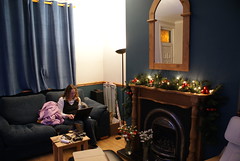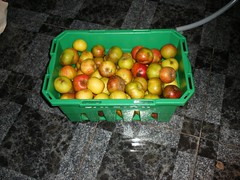We had some fun and games with our house server recently, when one of its disks died horribly*. I’ve only just got around to sorting out the backups again now, which use an external USB hard drive and
rsnapshot. I started by reading my
earlier rsnapshot post and also the one about the
gotcha with mounting external drives. And yes, I do use this blog instead of a working human memory, much easier to find things.
When I mounted the drive, I saw I had one of the older daily.* directories with question marks for its name, date, permissions and so on when I ran ls. When I tried to do anything with the directory, I got the error stale NFS file handle, which was interesting since we don’t use NFS. After some looking around, I got the recommendation to run fsck.
Before running fsck, the drive must be unmounted.
Then, since mine was sdb1 I ran:
fsck -y /dev/sdb1
The -y switch asks fsck to try to fix every problem it encounters (this was quite a life saver, there were thousands of them before I stopped holding my finger down on the “y” key!) – it comes with warnings that experts may do better to fix manually, but really that’s not me.
The disk is now fine and the backups run fine, I guess it was just the old disk on its way out copying nonsense onto the external drive during backups.
* The stupid thing then blew up its power supply and took the UPS with it a week later, but that’s the way the cookie crumbles.







